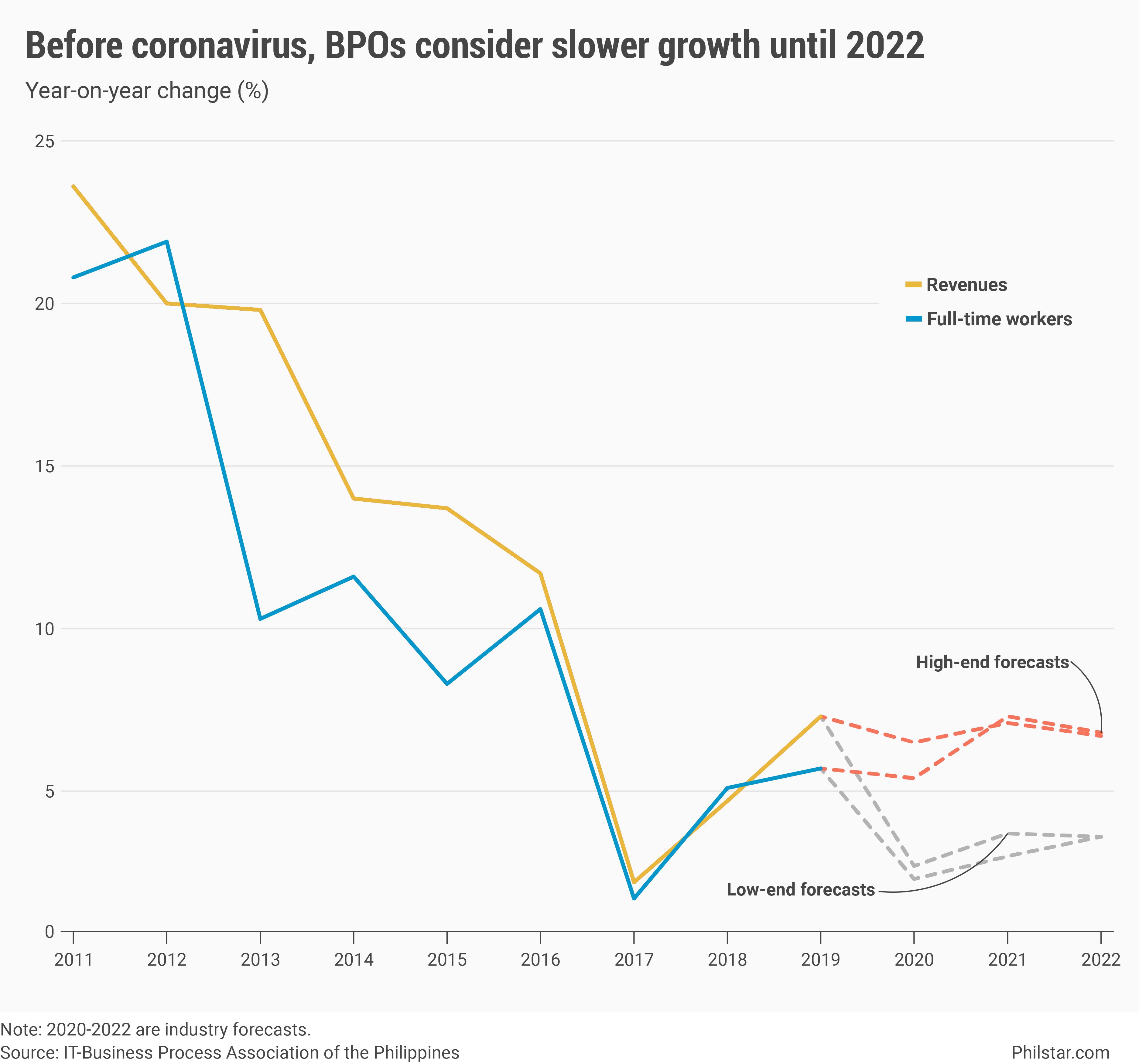Coronavirus to 'impact' BPO revenue, employment forecasts

MANILA, Philippines — Growth projections of the country’s business process outsourcing (BPOs) sector will be reviewed to consider the impact of the coronavirus disease-2019 (COVID-19) outbreak, an industry group said.
“The sector is dealing with the global economic fallout caused by the COVID-19 pandemic. Domestically speaking, this will have an impact on 2020 headcount and revenue projections…,” the IT-Business Process Association of the Philippines (IBPAP) said in a statement.
While IBPAP did not mention the direction the review will be going, BPO operations had been severely disrupted by the pandemic, as well as the lockdowns enforced to put the contagion under control.
Before the pandemic hit, BPO companies already lowered their revenue and employment projections last December, taking into account various developments such as the rise of artificial intelligence as well as investor hesitations due to government plans to reduce tax perks in the sector.
Current revision plans indicate, however, that an acceleration in BPO revenue and employment growth last year is coming intense threat from COVID-19. Last year, revenues from the sector grew 7.3% year-on-year to $26.3 billion from $24.5 billion a year ago.

Full-time employment, meanwhile, rose 5.7% annually to 1.33 million, which in absolute values, translated to 71,000 additional jobs year-on-year. The rate was faster than the 2018’s 5.1%.
Apart from generating new jobs, IBPAP said 65% of employees on its over 300 member-firms also rendered more “high-value” work, a direction the sector, long known for its contact centers, had long advocated in search of further growth.
Apart from remittances from migrant workers, dollar earnings from BPOs have kept the Philippine economy afloat during previous crises, and central bank Governor Benjamin Diokno had expressed his optimism BPOs would actually thrive during the pandemic amid the hastening shift to telecommuting.
BPO companies were among those exempted from extreme movement restrictions, but IBPAP said the Luzon lockdown in particular forced 58% of their manpower to work from home or hotels paid for by BPO firms. Only 15% formed part of the skeleton staff in offices.
Despite the limited workforce however, IBPAP clarified that the enhanced community quarantine (ECQ) in Luzon that started March 17 “significantly improved the industry’s productivity rate,” although without citing any figures.
“The dialogue on rebalancing, reshaping, and re-solutioning the future of the sector is another critical and expected next step, and one that requires multi-agency, multi-industry, and multi-sectoral cooperation to ensure the country’s continuing relevance in the global marketplace despite and amid the challenges,” IBPAP said.
Note: The chart for this article had been updated to reflect clarifications from the IBPAP on revenue and employment forecasts, which are in range, from 2020 to 2022. The rest of the article remained unchanged.
- Latest
- Trending































